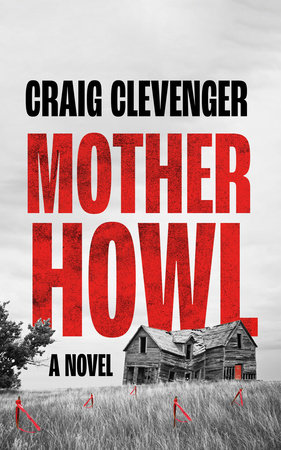Craig Clavenger
Datura Books/Angry Robot Books ($17.99)
by Gavin Pate
It’s been eighteen years since Craig Clevenger’s previous novel, and his fans have long wondered if the next book would inhabit the same sinister world of broken criminals and slippery identities as his earlier works. With the release of Mother Howl, the answer is yes, and then some. The most ambitious of his three books, Mother Howl has a wider scope and takes more risks; the novel has equal parts gritty realism and swaths of the fantastic. It’s a crime story and a social commentary at once, a book unafraid to be philosophical about humanity’s purpose on Earth and how we must learn to deal with our pasts if we want to fulfill it.
Lyle Edison, the son of a serial killer, changed his name years ago to escape his father’s crimes; now, he is on the cusp of a new marriage and baby. Problem is, he’s trying to navigate The System: the hoops he must jump through while on probation and the malicious officials determined to reduce him to their shuffling paperwork. All the while, he worries someone will discover who he really is. Lyle’s predicament allows Clevenger to dive into the modern noir underworld of mandatory recovery groups and piss-tests, hard-screw probation officers, tenuous employment, and piles of mounting bills. The author carefully balances Lyle’s desire to do right by his new family and his urge to vanish again, though when the book begins, it is clear there is nowhere left for Lyle to hide.
While Lyle’s story is the dominant narrative, it is the mysterious character of Icarus who pushes Lyle from the shadows and forces him to confront his past. Icarus is a man on a mission, sent by a strange entity he calls the Mother Howl. Early in the novel, Icarus explains to a psychiatrist:
Captain, me and my crew, we cooled the earth. I’ve crumpled suns in my bare fist. Made those black hole things, pockets of space so dark they bend math. I watched you monkeys climb down from the trees, sprout thumbs and figure how to sharpen sticks so’s to roast marshmallows in front of cave paintings. And I’m just one of the clean-up guys. A clock puncher.
Is this the story of a fallen angel or another street-smart schizophrenic cut loose in the world? Clevenger impressively straddles these possibilities and keeps the reader as uncertain about Icarus’s identity as the other characters are.
The intertwined stories make for a slow burn, but in the process, Clevenger delivers a series of thoughtful set pieces that allow his themes of memory, identity, and survival to develop through the material stresses of society’s forgotten and ignored. In vivid prose that defies the traditionally curt style of the crime fiction genre, Clevenger carries the story along with powerful recurring images and poignant dialogue. Mother Howl might test the patience of those who like their noir shackled to reality and all their questions neatly answered, and some might find the distribution between Icarus and Lyle a bit uneven, but for those who read to the end, the rewards are plentiful— especially in the last fifty pages, where two expert scenes (one with Lyle and one with Icarus) tie together the story’s looming questions and reveal both the horror and the hope at its center.
As for the Mother Howl—the godlike transmission running like static through the world—the book will make you wonder if you’re tuned to it, and if not, what you’re missing, or what you’ve been refusing to hear. If Mother Howl tells us anything, it’s the importance of paying attention to the here and now.
Click below to purchase this book through Bookshop and support your local independent bookstore:
Rain Taxi Online Edition Winter 2023-2024 | © Rain Taxi, Inc. 2024

